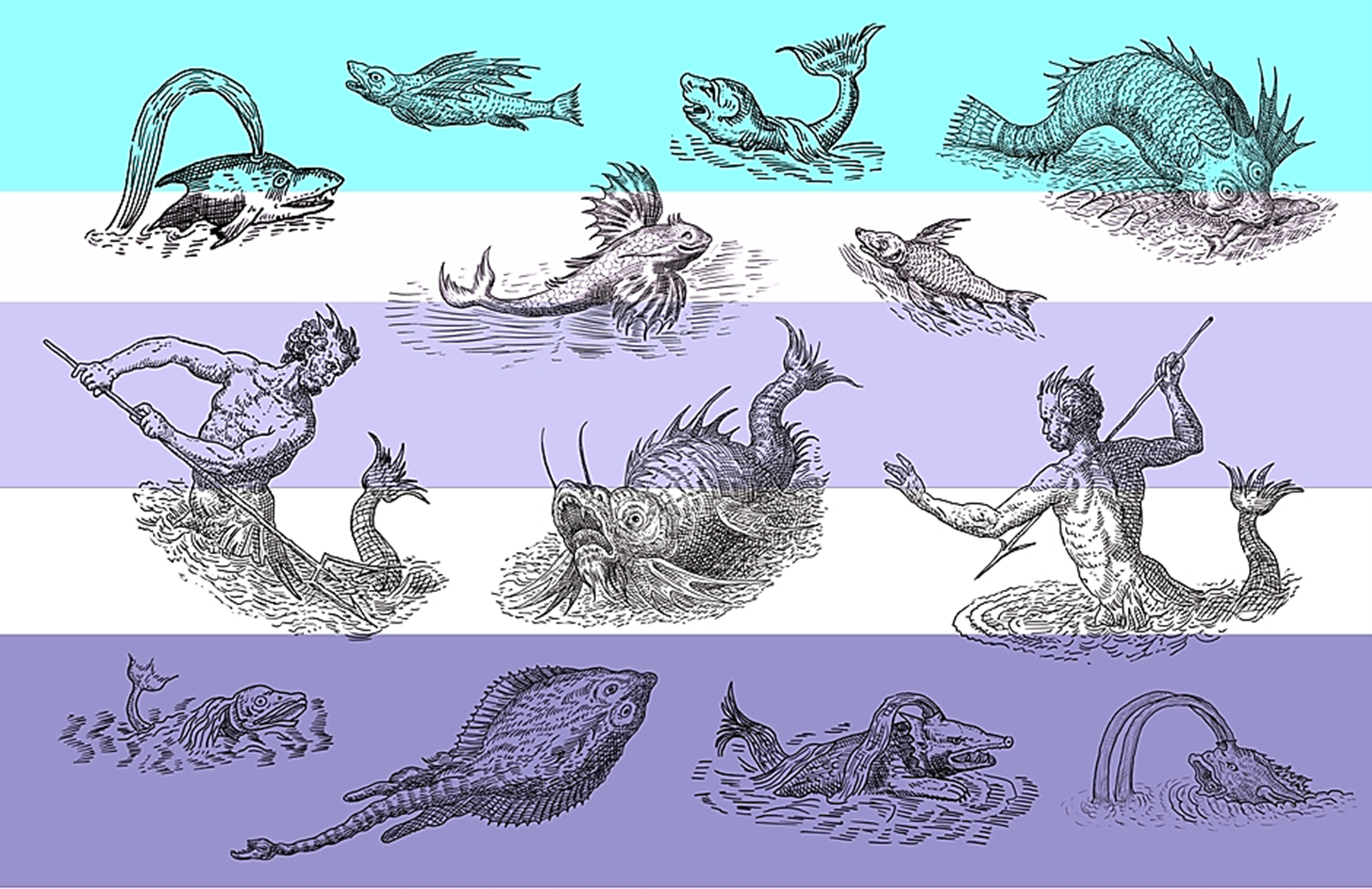
by Fern Shaw | Feb 22, 2026 | bottle fed water coolers, water cooler, Water Coolers, water dispenser
We’ve all heard tall tales about what might be lurking beneath the surface of lakes and rivers. Thankfully, the only thing you’ll find in a well-maintained office water supply is cool, clean refreshment. Still, Britain has produced some wonderfully strange freshwater folklore over the years. Let’s dive in, shall we?
Jenny Greenteeth – Lancashire & the North West
Said to dwell in ponds and slow-moving streams, Jenny Greenteeth was blamed for pulling unsuspecting children into the water. With green skin and sharp teeth, she was the stuff of Victorian warnings about playing too close to murky banks. A useful reminder to respect open water – and perhaps to stick to a properly filtered supply indoors.
The Grindylow – Yorkshire & the Humber
A cousin of Jenny, the Grindylow was thought to lurk in marshes and stagnant pools. Described as having long arms and a habit of dragging wanderers below the surface, it featured heavily in northern cautionary tales. Fresh, moving water was considered safer – though we’d still recommend something drawn from a hygienic source rather than a moorland beck.
Peg Powler – River Tees
Along the banks of the River Tees, Peg Powler was the name given to a river hag said to haunt the shallows. Parents warned children that Peg would snatch them if they strayed too close. Like many river legends, the story likely served as a practical lesson about hidden currents and slippery stones.
The Each-Uisge – Scottish Highlands
Often described as a freshwater relative of the kelpie, the Each-Uisge was said to inhabit lochs rather than the sea. Taking the form of a horse, it would tempt riders onto its back before plunging into deep water. As ever, folklore and fast-flowing water make uneasy companions.
Fortunately, the only surprise your office hydration point should deliver is how refreshing it tastes. Any of the wide range of high-quality AquAid water dispensers offers a dependable source of refreshing drinking water without the folklore.
If you prefer traditional spring supplies, a bottled water cooler provides sealed, quality-checked water delivered straight to your workplace. Alternatively, mains fed water coolers connect directly to your building’s supply, filtering it on site for a constant flow with no bottles required.
No river hags. No loch beasties. Just a constant supply of clean, great-tasting water – exactly as it should be.
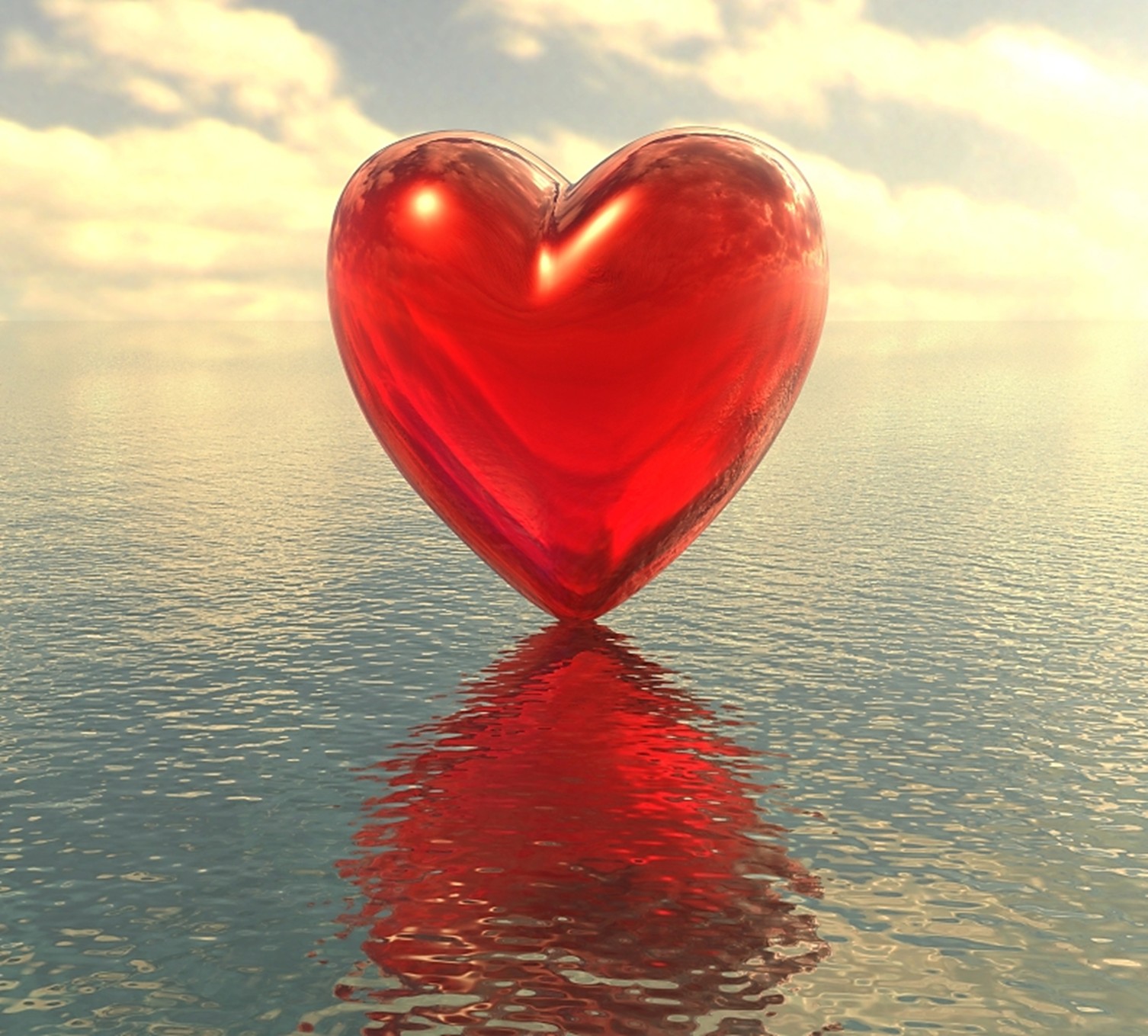
by Fern Shaw | Feb 16, 2026 | water cooler, water cooler, Water Coolers
In busy lives, staying healthy can slip down the priority list. Yet one of the simplest daily habits – drinking enough water – supports the body in remarkable ways.
This blog is the first in a series exploring organ health and how good hydration habits help the body function as it should. As it’s the month of love, we’re beginning with the heart.
The Heart: Your Body’s Engine
Is often described as the body’s powerhouse. It’s a muscle – highly specialised and remarkably complex – that relies on electrical impulses to maintain its steady rhythm.
Every day, it beats around 100,000 times, pumping roughly eight pints of blood through the circulatory system. That blood delivers oxygen and nutrients to tissues and organs, while carrying away carbon dioxide and other waste products. The heart and blood vessels work in constant partnership to keep everything running smoothly.
To do this efficiently, the heart depends on adequate hydration.
How is Drinking Water Important?
The human heart is made up of approximately 73% water. Like all vital organs, it requires sufficient fluid to function properly.
While the heart cannot ‘drink’ water directly, it relies on the body’s overall fluid balance. When fluid intake is too low, blood volume decreases. With less volume, blood becomes more concentrated and harder to circulate. The heart must then work harder to move it around the body.
Over time, this additional strain may contribute to stress on the heart and blood vessels.
By contrast, staying well hydrated helps maintain healthy blood volume and circulation. Well-hydrated blood flows more easily, allowing the heart to do its job with less effort.
Hydration and Heart Health
Research suggests that higher water intake is associated with a lower risk of death from coronary heart disease. Adequate hydration supports efficient circulation and helps the cardiovascular system function as it should.
In simple terms: drinking enough water supports the heart in carrying out the thousands of tasks it performs each day – steadily and without pause.
A Simple Habit = Super Benefits
Looking healthy on the outside begins with caring for what’s inside. The heart works tirelessly; giving it the hydration it needs is a straightforward way to support long-term wellbeing.
This♥month provides the perfect opportunity for us to be kinder to ourselves, our bodies and lives. The next time you’re about to pass the water cooler, don’t. Refill your water bottle or water glass. Make it a daily habit.
Each drink of water you take, you’re supporting a healthier heart – and a healthier you.
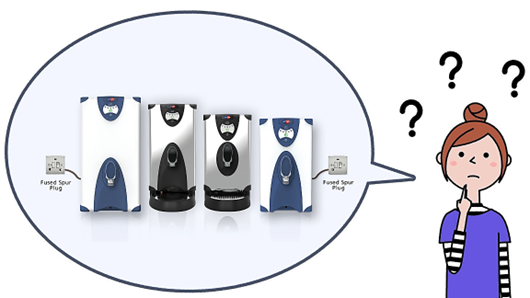
by Fern Shaw | Feb 9, 2026 | Water Boilers, water cooler, Water Coolers
Choosing the right hot water boiler for a workplace can feel more complicated than it needs to be. With different capacities, styles and installation options available, the key is understanding what suits the environment, the people using it and the pace of the day.
This guide breaks down the essentials, without getting overly technical, so organisations can make a confident, practical choice.
What is a hot water boiler, really?
A hot water boiler provides a reliable supply of near-boiling water on demand. Designed for professional settings, these systems are commonly found in offices, catering environments, staff rooms and educational facilities where speed, safety and consistency matter.
Unlike kettles, boilers reduce waiting time and help streamline busy routines, especially where multiple people need hot water throughout the day.
Instant Taps or stored: what’s the difference?
Boiling water taps heat water as it’s needed, delivering hot water almost immediately. This makes them well suited to workplaces with regular, steady demand.
Systems with internal tanks, on the other hand, store a set volume of hot water ready for use. These can be a good option in catering or education settings where demand peaks at specific times.
Key things to consider:
- How many people will use the boiler daily
- Whether usage is constant or concentrated at certain times
- Available space for installation
Wall-mounted or countertop?
For workplaces where space is at a premium, wall mounted water boilers are a popular choice. Installed off the work surface, they help keep kitchens and service areas clear while still delivering high performance.
Countertop models may suit larger staff areas or catering spaces where higher output is required and space allows for it.
Capacity, safety and efficiency
When selecting a boiler, capacity matters. Too small and it may struggle during busy periods; too large and it could be more than the organisation needs.
Modern systems are designed with safety features such as insulated taps and controlled dispensing, helping reduce the risk of accidents in shared environments. Energy efficiency is also worth considering, particularly in workplaces aiming to manage running costs responsibly.
A practical choice for busy environments
The right hot water boiler supports day-to-day efficiency, keeps teams moving and removes the bottleneck of waiting for kettles. By focusing on demand, space and usage patterns, organisations can choose a system that delivers piping hot drinking water throughout the working day, exactly when it’s needed.
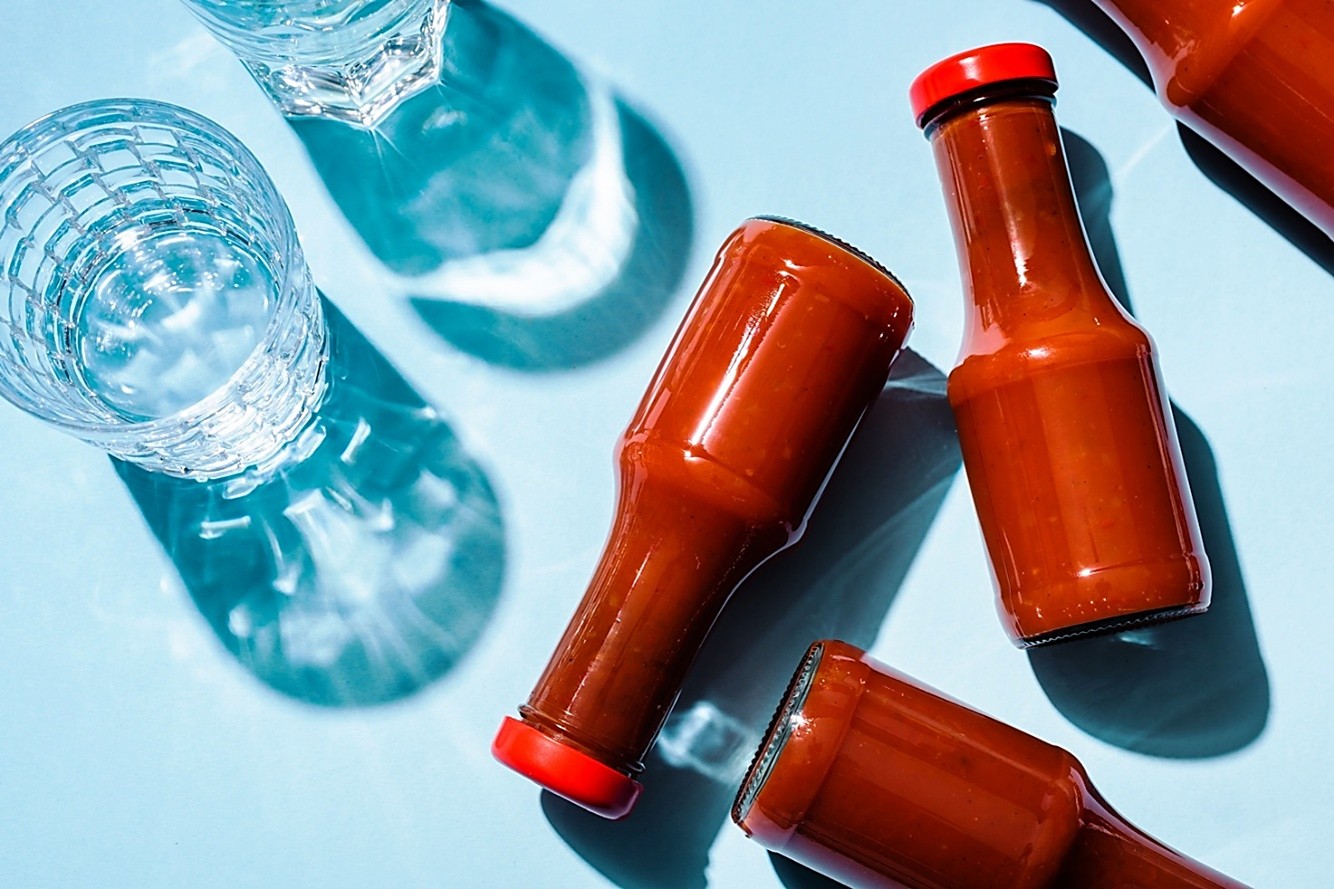
by Fern Shaw | Feb 4, 2026 | Water Boilers, water cooler, Water Coolers
This was supposed to be a straightforward, C-for-serious blog about hot water bottles and the clever clogs (as me mum used to say) who invented these marvellous little body warmers. Truly. Pure intentions all round.
It started sensibly enough. I’d been reading about bed warmers for years, vaguely picturing something cosy and civilised. Then I watched a period drama and – lo and behold – the mystery was solved. An olde metal contraption, pre-heated and slid into the bed like some kind of medieval hot brick. I can only assume you weren’t meant to climb in while it was still there. Thankfully, we’ve moved on.
Modern hot water bottles are far less … perilous. According to Wiki:
Modern day conventional hot water bottles were invented in 1903 and are manufactured in natural rubber or PVC, to a design patented by the Croatian inventor Eduard Penkala. They are now commonly covered in fabric, sometimes with a novelty design.
By the late 20th century, their popularity dipped as homes became better heated and electric blankets muscled in on the night-time warmth market. That said, hot water bottles never really went away. They remain popular in Ireland and the United Kingdom, developing countries and rural areas. They’re widely used in Chile (where they’re known as a guatero) and have even enjoyed a resurgence in Japan as an eco-friendly, thrifty way to keep warm.
Now – important note – none of the above should be confused with an AquAid hot water boiler. That’s for keeping your insides warm, not your outsides. A subtle distinction, perhaps but a distinction, nonetheless.
During the colder weather we’re now experiencing; when you ‘ave to get up out of shoebox at twelve o’clock at night and lick road clean wit’ tongue before heading off to work – it’s comforting to know that once you arrive – salvation awaits. A well-positioned hot water boiler, keeping water at a steady 98 °C. Ready. Reliable. Fully capable of supplying piping hot water for any stomach warming hot drinks.
Just don’t try using the hot water boiler as a hot water bottle. If nothing else, it’s an unsightly, soggy mess to be cleaning up after.
Happy keeping warm and toasty this winter. And no – you may not use the water from your hot water boiler to fill your hot water bottle … nice try.
A note on the blog image, selected purely for amusement: while sourcing hot water bottle images to head up this blog, inserting entirely sensible keywords, a series of … unexpected images appeared. If anyone can explain the connection, we’re all ears.
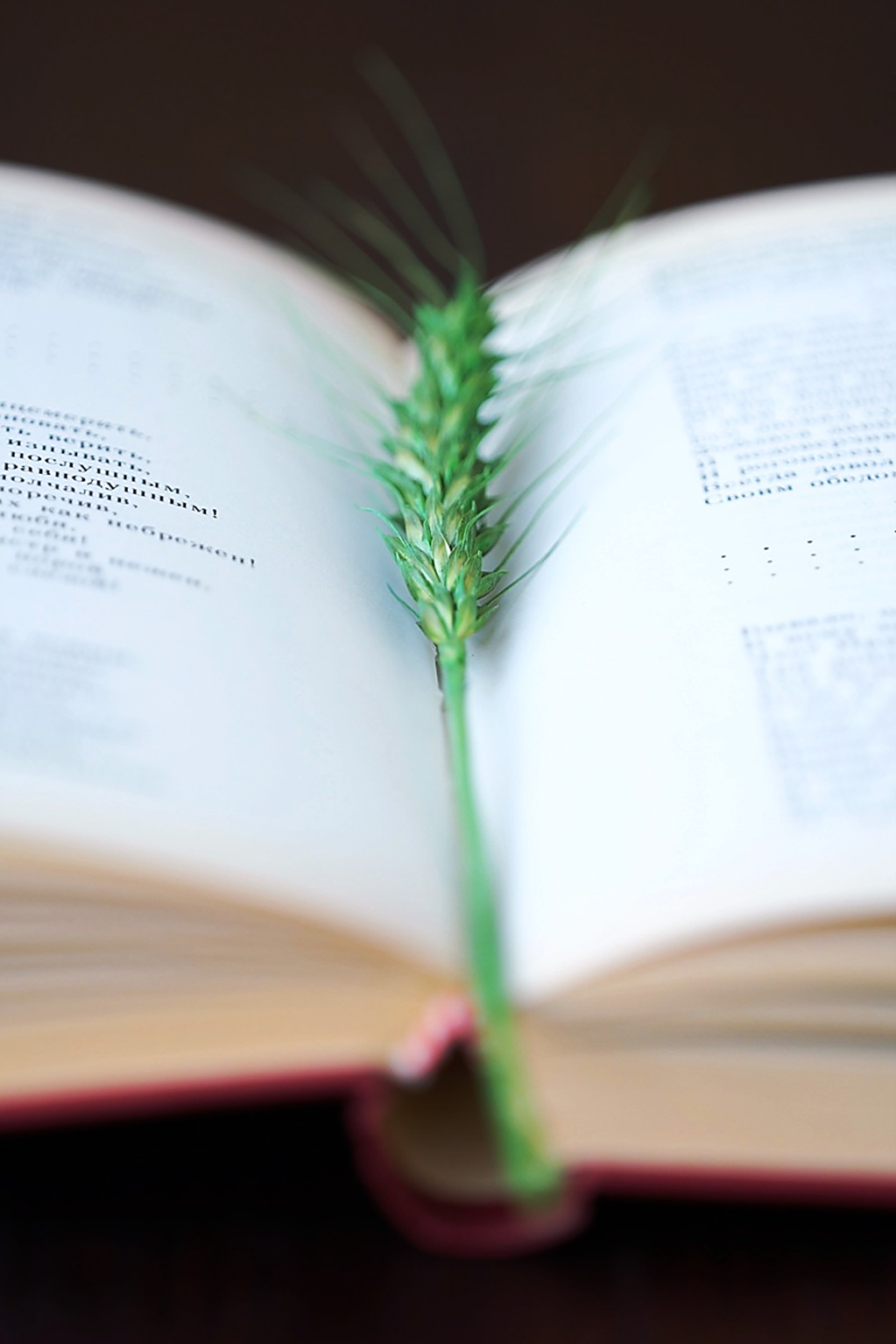
by Fern Shaw | Jan 23, 2026 | water cooler, Water Coolers
International Environmental Education Day focuses on how learning shapes the way we care for our planet and in turn, ourselves. At its core, environmental education is about more than understanding climate change or conservation – it’s about empowering people with the knowledge and practical skills to build sustainable futures for themselves and their communities.
The significance of environmental education
Environmental education helps people understand how their everyday actions connect to the wider world. It encourages critical thinking, long-term planning and a sense of shared responsibility for natural resources. Most importantly, it turns awareness into action.
When environmental education is done well, it supports:
- Sustainable use of land and water
- Improved food security
- Healthier ecosystems and communities
- Greater resilience to climate and environmental change
Education becomes even more powerful when it’s paired with practical solutions that people can use immediately in their daily lives.
Constant water supply and sustainable farming
Access to clean water is one of the strongest foundations for environmental education. Without it, communities are forced to focus on survival rather than sustainability.
For decades, AquAid has supported charities that do far more than provide safe, clean drinking water. These organisations work directly with communities to implement long-term, sustainable water solutions – and crucially, to educate people on how to protect and maximise those resources.
This education often includes teaching communities how to:
- Farm more sustainably
- Grow diverse, nutritious crops
- The ability to feed livestock
- Sell surplus produce to generate income
- Reinvest in land, tools and future harvests
The result is not just clean water, but stronger local economies, healthier environments and communities that are equipped to support themselves long into the future.
Small actions, huge outcomes
Which is why choosing an AquAid water cooler is about more than hydration in the workplace. Every installation automatically contributes to continued environmental education across Africa – supporting sustainable water projects and the practical knowledge that helps communities care for their land, grow food and build stronger, more secure futures.





